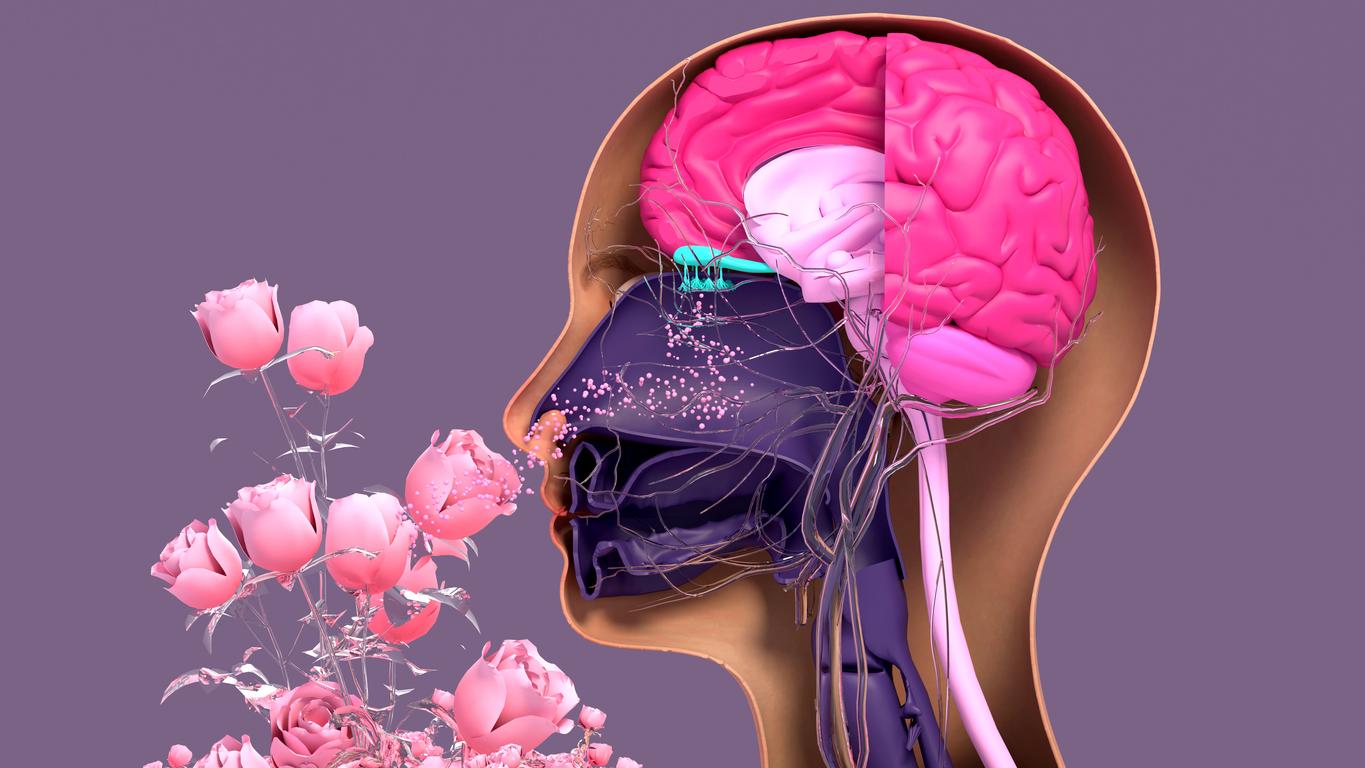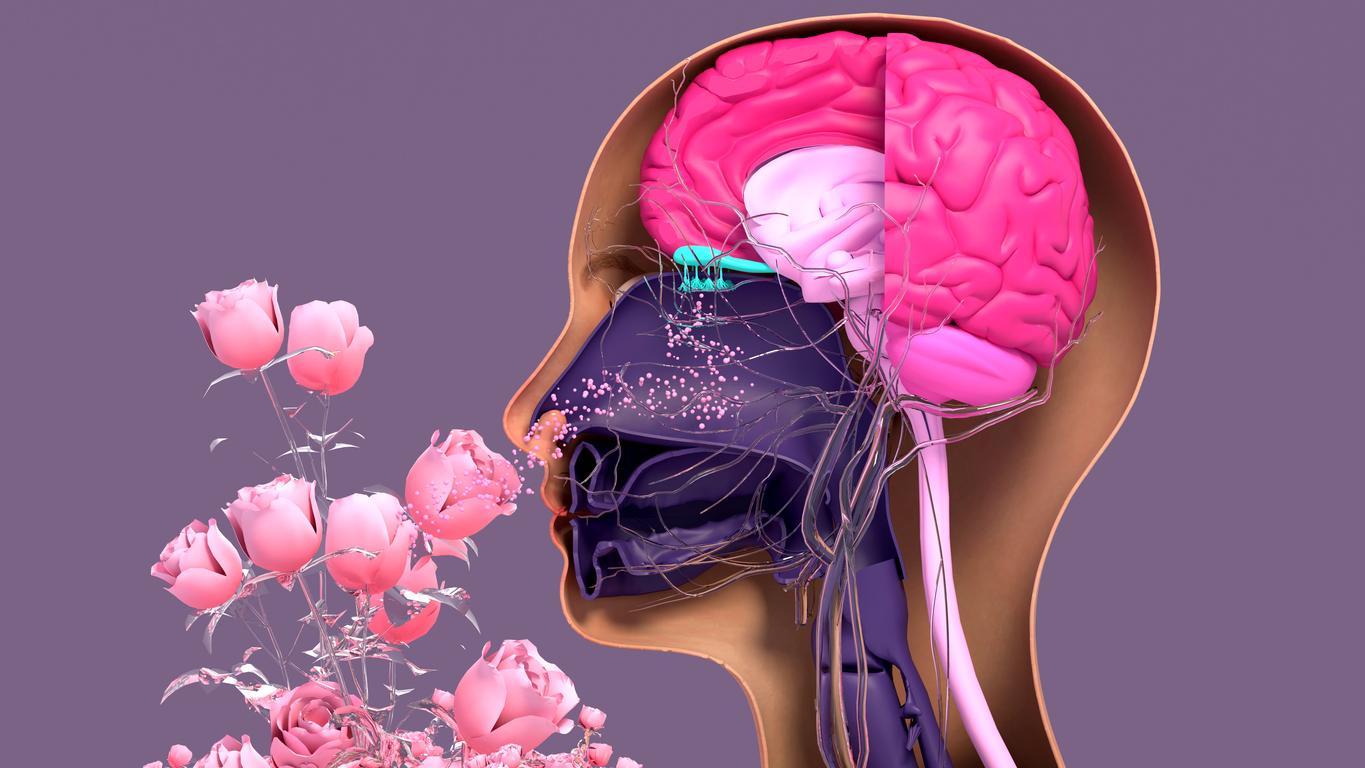As the coronavirus epidemic continues to progress around the world, there is one symptom of Sars-Cov-2 infection that is getting a lot of talk: loss of smell or “anosmia” in medical parlance. Doctors specializing in ENT (nose, throat, ears) wonder about the origin of this symptom, its forms and the recovery times.
- The recovery time is estimated at two months
According to one European multicenter study carried out on 1,300 patients and coordinated by the Foch Hospital and the University of Mons in Belgium, 75 to 85% of anosmic patients seem to recover their sense of smell two months after the end of the disease. Regarding taste, the latest study from Foch Hospital shows that 90.6% of patients who reported a loss of taste seem to have regained taste two months after the end of the coronavirus disease.
- Loss of smell affects mild forms more
According to the same study, the presence of a smell disorder is a good prognostic factor for coronavirus disease. Indeed, patients who have developed severe coronavirus disease, as well as those who have been hospitalized in intensive care, have a significantly lower proportion of smell disturbance than subjects not hospitalized in intensive care.
- Loss of smell is one of the most common symptoms
In a first study conducted between March 22 and April 10, 2020 on 1,420 patients with mild or moderate Covid-19 infection conducted by the International Federation of ENT Societies (IFOS), the researchers listed the most common symptoms. more frequent. They found that loss of smell is present in 70% of cases in these patients, which is as much as headaches, and slightly more than nasal obstruction (68%) and cough (63%).
- And that’s an early symptom
In addition, again according to this study, odor disorders occurred either before the onset of other symptoms of Covid-19 (in 12% of cases), either during (65% of cases) or after (23% of case).
- Women are more affected by loss of smell
This loss of smell – which is partial or total depending on the patient – is not related to nasal obstruction (stuffy nose) or to rhinorrhea (runny nose). Surprisingly, it is a symptom of Covid-19 that is observed more in women.
The researchers also point out that Chinese studies do not (or almost) speak of loss of smell linked to infection with the coronavirus. “The neuro-invasive potential of Covid-19 (…) may be more common in European patients than Chinese patients“due to purely biological differences between peoples,” they explain.
- The invasion of the central nervous system (and not false nasals) would be involved
How to explain the anosmia (loss of smell) caused by Covid-19? For the moment, nothing is certain. The researchers nevertheless believe that “olfactory disorders (…) could be linked to the neuro-invasive potential of Covid-19. (…) The ability of Covid-19 to invade the olfactory bulb and, therefore, the central nervous system, is probably a lead.“
Source: press release Foch Hospital
Read also :
A cinnamon test to detect the coronavirus
Coronavirus: how do you know if you have it?
Where to get tested for the coronavirus?
AlloCovid, an artificial intelligence dedicated to the coronavirus
Conjunctivitis, a symptom of the coronavirus?
Digestive disorders, atypical symptoms of coronavirus
Coronavirus: redness, hives and skin symptoms
Coronavirus: promising treatments


















